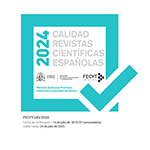Promoting mental fitness in the context of active ageing policies: Comparative analysis of action programme objectives in eight countries
Abstract
In the context of an ageing European population there is increasing demand for policies and strategies aimed at maintaining or stimulating the cognitive abilities of older adults. Mental fitness programmes seek to maintain and promote the emotional and psychological wellbeing of older adults, enabling them to meet the demands of everyday life. Although many European countries have implemented programmes and services within a broad framework of active ageing, there are no standardised guidelines regarding how this should be done. In order to learn more about these programmes and services and provide useful information for decision making by policy makers we conducted a comparative study of the initiatives undertaken in eight different countries. Using qualitative content analysis we examined the stated objectives – in terms of attitudes, knowledge and abilities – of 116 programmes and services implemented across these countries. Overall, the results showed that ability objectives are much more common than are those focused on attitudes and knowledge. A more specific network analysis also provided information about how the sub-categories of each of the three kinds of objective are related to one another. The findings have practical implications for future planning of mental fitness programmes.
Downloads
Article download
License
In order to support the global exchange of knowledge, the journal Cuadernos de Trabajo Social is allowing unrestricted access to its content as from its publication in this electronic edition, and as such it is an open-access journal. The originals published in this journal are the property of the Complutense University of Madrid and any reproduction thereof in full or in part must cite the source. All content is distributed under a Creative Commons Attribution 4.0 use and distribution licence (CC BY 4.0). This circumstance must be expressly stated in these terms where necessary. You can view the summary and the complete legal text of the licence.









